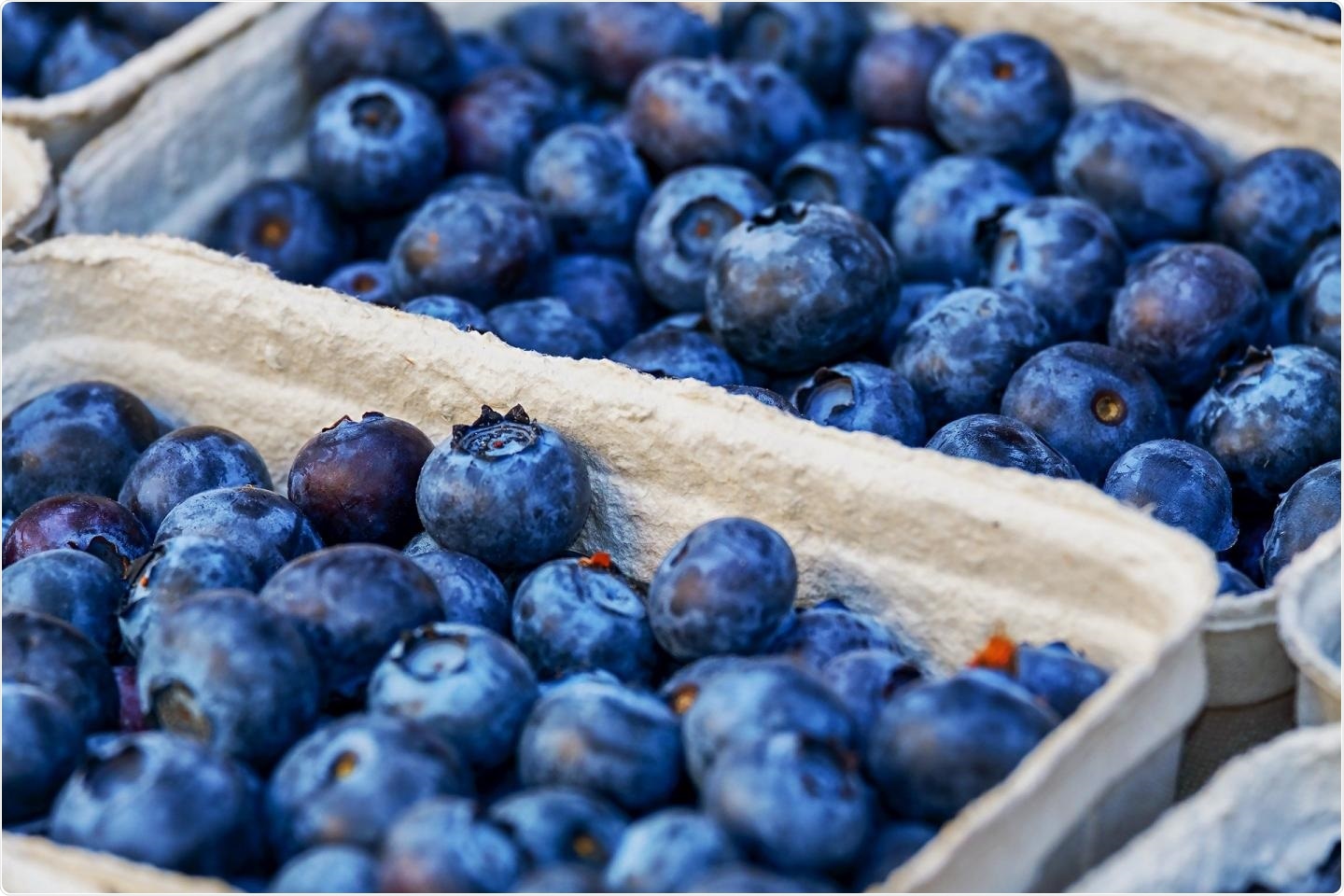Different plants and their products contain “bioactive” components that can reduce human diseases. Such “phytocompounds” usually contain restorative biological properties, like antioxidant, anti-cancerous, and anti-inflammatory effects.

A polyphenolic compound derived from blueberry shows remarkable immunosuppressive effects and can be useful in treating Inflammatory bowel disease (IBD) Image Credit: Tokyo University of Science.
Therefore, a better understanding of how these compounds interact with the body can lead to the development of potential treatment methods against major immune diseases.
A group of scientists from Tokyo University of Science, headed by Professor Chiharu Nishiyama, has been exploring this subject for the past several years, to detect novel active components in functional foods and interpret their effects on the body.
The researchers’ efforts have now resulted in success: In their new study published in The FASEB Journal, the team discovered a polyphenolic compound known as “pterostilbene” (PSB) that has powerful immunosuppressive properties—rendering it a potential therapeutic option for chronic inflammatory diseases, such as inflammatory bowel disease (IBD).
This compound is quite analogous to another phytocompound believed to have significant medicinal effects, known as “resveratrol” (RSV).
RSV, a polyphenol, was known to have pronounced immunomodulatory and anti-inflammatory effects on animal models of colitis ulcer. Therefore, we investigated the possibility of other compounds structurally similar to RSV as a new type of treatment for IBD.”
Dr Takuya Yashiro, Study Corresponding Author, Tokyo University of Science
In patients suffering from IBD, the gastrointestinal tract lining contains long-lasting ulcers induced by chronic inflammation because of increased immune response in the body. This includes surplus production of immune system-related molecules known as “cytokines.”
In addition, two types of immune cells called “T cells” and “dendritic cells” (DCs) are also involved in this process—when an immune response takes place, DCs synthesize inflammatory cytokines and trigger T cells to initiate a defense response.
Such processes collectively form a complex route that leads to a “hyper” immune response. Therefore, to identify an effective compound that can inhibit the immune system, it was vital to test it on this population of immune cells.
Hence, to start with, the team analyzed the impacts of a series of plant-derived compounds on the proliferation of DC-mediated T cells. Their initial study led them to PSB, which exhibited more powerful immunosuppressive activity than the other candidates.
Upon closer inspection, the researchers learned that PSB treatment inhibits T cells from differentiating into Th17 and Th1 (both subtypes of T cells that increases the immune response) while enhancing their differentiation into regulatory T cells (another subtype known to suppress inflammation).
The researchers also showed that PSB treatment blocks the production of inflammatory cytokines from DCs by attenuating the DNA-binding activity of a significant transcription factor PU.1.
When the team further analyzed the PSB in mice with IBD, they observed that oral intake of PSB enhanced the IBD symptoms. Thus, the research work confirmed that PSB is a highly promising anti-inflammatory agent to combat IBD. Added to this—it is easily absorbed by the body, rendering it an ideal drug candidate.
With these latest findings, the team has ushered in novel possibilities for treating not only IBD but also other inflammatory disorders.
For disease prevention, it is important to identify the beneficial components in foods and to understand the underlying mechanism by which immune responses and homeostasis are modulated in body. Our findings showed that PSB possesses a strong immunosuppressive property, paving the way for a new, natural treatment for IBD.”
Dr Takuya Yashiro, Study Corresponding Author, Tokyo University of Science
Source:
Journal reference:
Yashiro, T., et al. (2020) Pterostilbene reduces colonic inflammation by suppressing dendritic cell activation and promoting regulatory T cell development. The FASEB Journal. doi.org/10.1096/fj.202001502R.